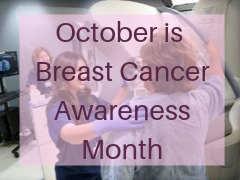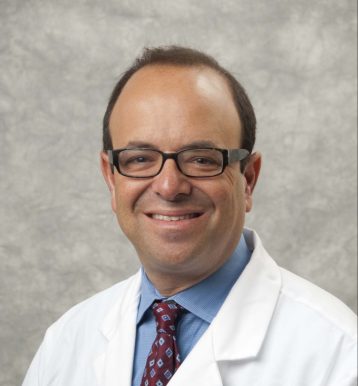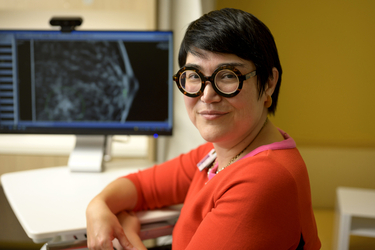 In October, numerous media outlets featured experts from MSK during Breast Cancer Awareness Month. Here are some highlights:
In October, numerous media outlets featured experts from MSK during Breast Cancer Awareness Month. Here are some highlights:
- Dr. Elizabeth Comen offered guidance in a Huffington Post article about providing support to someone after a mastectomy. She said that you should not assume the person will have reconstructive surgery, or that a mastectomy means someone will never get breast cancer again. Rarely, it can recur or a patient can get a diagnosis of metastatic breast cancer.
- MedPage Today interviewed Dr. Neil Iyengar about a literature review he coauthored on the association between breast cancer and obesity. The paper concluded that current risk assessments do not include people with certain metabolic risks, regardless of weight and BMI. Loss of fat mass reduces some risk factors.
- The New York Times featured a small study indicating that chemotherapy may be sufficient treatment for certain breast cancer patients, allowing them to avoid surgery. Dr. Monica Morrow pointed out the small size of this early trial, saying it is not enough to lead to practice change.
- PIX 11 spoke to Michelle Benjamin, an MSK Care Coordinator and breast cancer survivor. She advised not to let fear keep you from getting changes in your body checked out early.
- The UK Huffington Post reported on male breast cancer. Dr. Nour Abuhadra discussed signs and risk factors and said male breast cancer is usually diagnosed later than female breast cancer as men are not typically screened for it.
- Cancer Today Magazine covered a study that found the drug Enhertu can increase the lifespan of certain patients with metastatic breast cancer. Dr. Elizabeth Comen explained how Enhertu functions, and recommended that patients ask their doctors about their HER2 status to see if they might be candidates for the treatment.
- Radiology Business quoted Dr. Christopher Comstock about the launch of a study for which he is the primary investigator. The screening trial aims to determine the efficacy of contrast-enhanced mammography in patients with dense breasts.
- Newsday quoted Dr. Julia Brockway-Marchello in an article about the rising rates of breast cancer in women under 40. Dr. Brockway-Marchello said that while we don’t yet know what caused this rise, it may be connected to as-yet-unidentified environmental and/or genetic factors.

